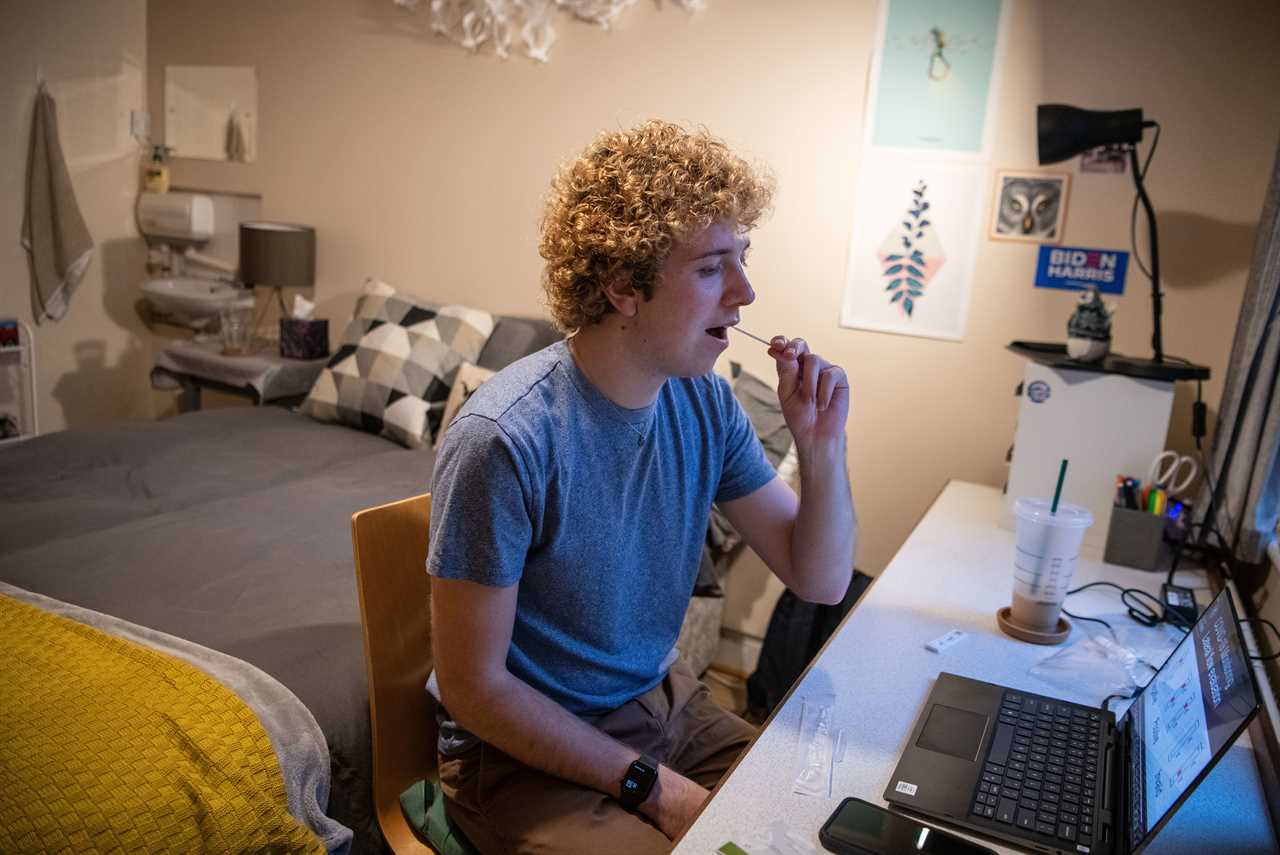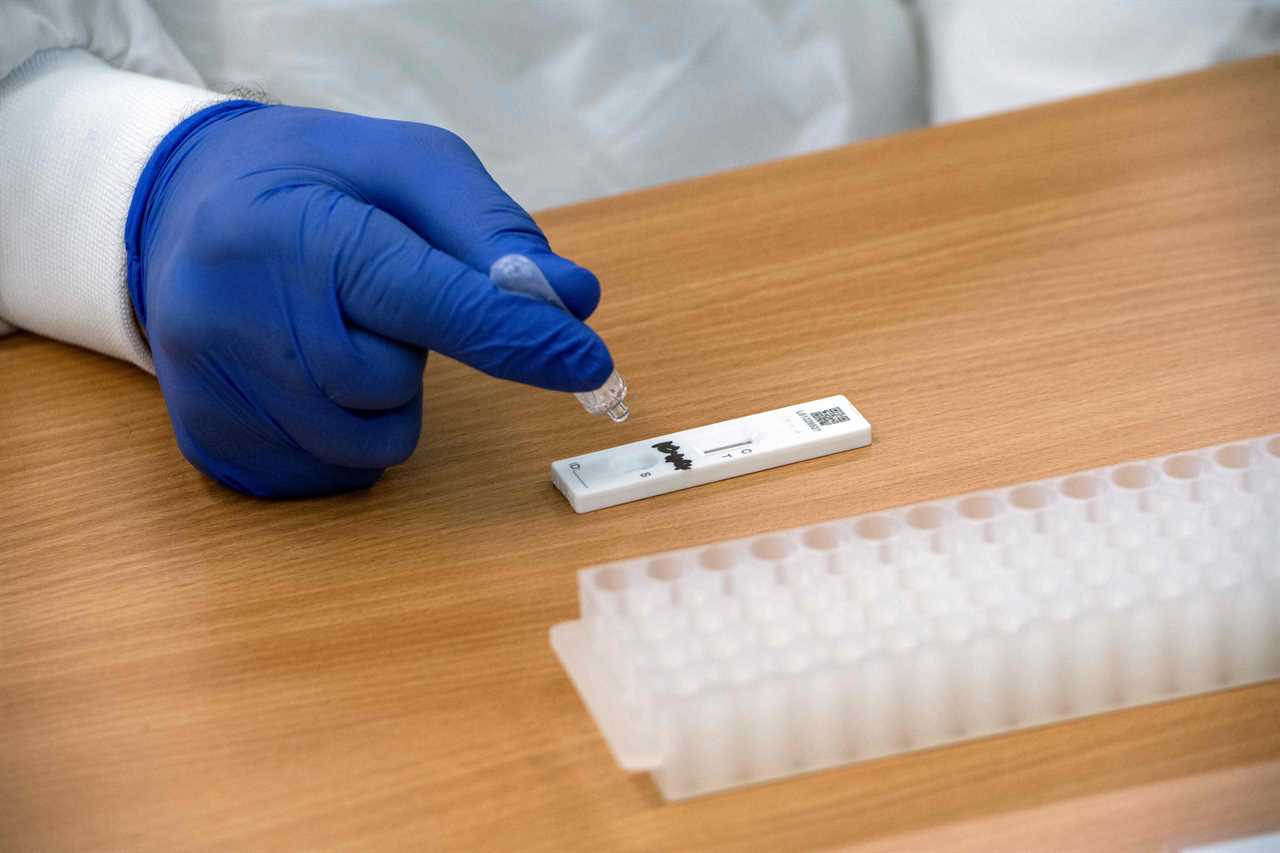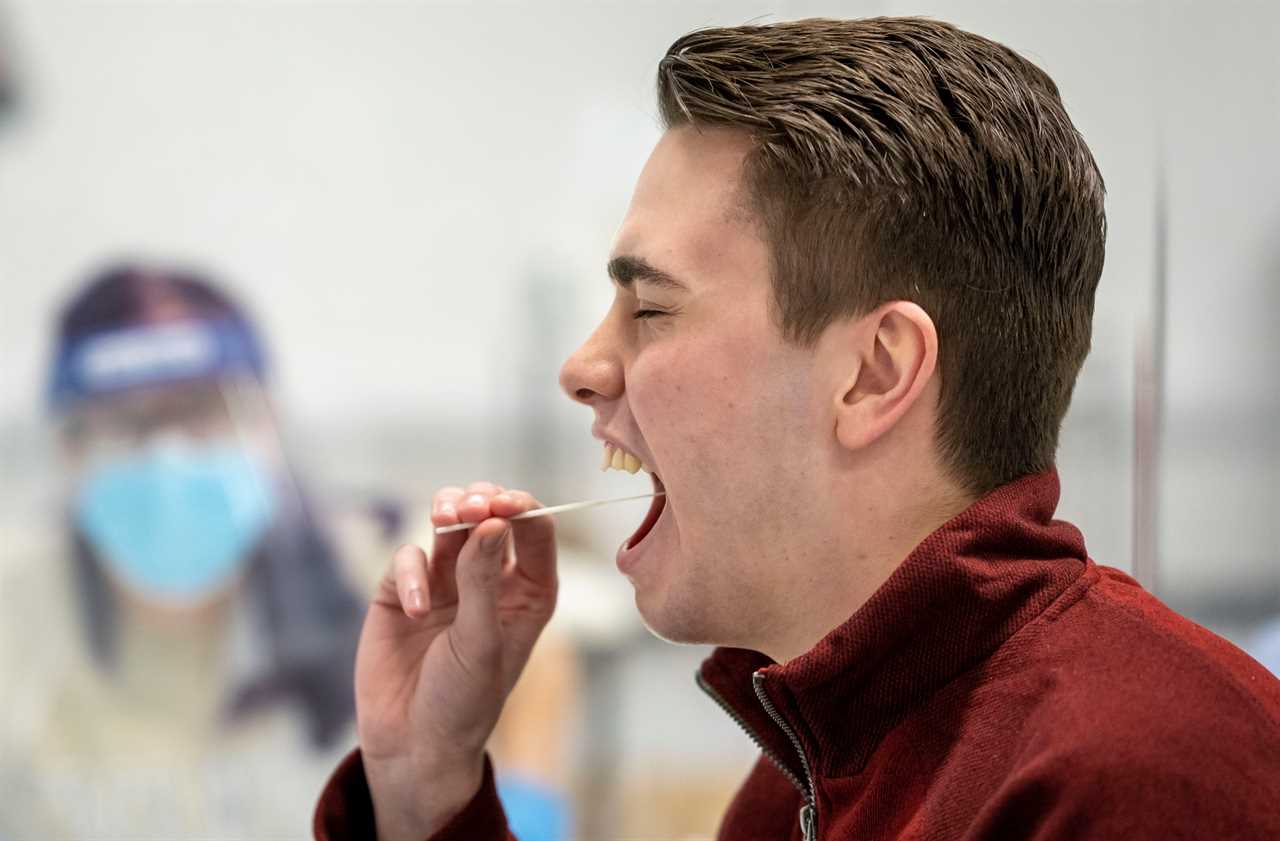RAPID coronavirus tests will be sent out to homes in a bid to avoid lockdowns – but experts have warned they should not be used to “mix with others”.
Regulators have approved the use of rapid 30-minute lateral flow tests by people at home with no medical expertise, the Financial Times reports.

The tests should only be used to “find” cases of the bug in order to self-isolate

The rapid Covid tests can give results in less than an hour
The tests should only be used to “find” cases of the bug in order to self-isolate, rather than allowing people use the tests to make life decisions, sources told the newspaper.
The Medicines and Healthcare products Regulatory Agency (MHRA) is “keen to emphasise that the devices are allowed to be used only to ‘find’ cases of Covid-19 infections, so that people who were not aware they had the virus are able to isolate”.
“They are not to be used to ‘enable’ people to make life decisions,” it added.
The decision follows the approval of an over-the-counter rapid test by regulators in the United States last week.
The UK government plans to roll out millions of the lateral flow tests as part of its mass testing programme in order to avoid major lockdowns.
More than one million rapid Lateral Flow Tests were sent to 385 of Britain’s biggest care homes in the first phase of the national roll out to allow visiting by Christmas.

Researchers warn the tests fail to catch people with low levels of the virus
The rapid tests were also used at universities to test students before they headed home during the “evacuation” period at the start of December.
But researchers warned the 30-minute tests pick up just half of all coronavirus infections and fail to catch people with low levels of the virus.
Four major care home chains and nine councils have refused to use the rapid tests for visitors over fears about their accuracy, the Daily Mail reports.
Tests manufactured by Innova were trialled in a pilot study in Liverpool, where thousands of residents queued to be swabbed at mass testing centres to find out if they were silently carrying the disease.
It comes as…
- Fears Birmingham may be ‘plunged into tier four lockdown’ after crisis meeting to tackle soaring mutant Covid strain
- Tier review u-turn over fears Brits may have ‘New Year’s Eve blowout’ before lockdown leaving police unable to cope
- Map reveals the places where Covid variant is spreading most rapidly across UK as mutant strain located in 57 places
- Parents’ fury as ‘schools may close for ALL of January’ after experts claim mutant Covid strain spreads faster in kids
- UK Covid cases see biggest ever daily rise with 36,804 infections and 691 deaths as positive tests double in a week
It found hundreds of cases with symptoms that otherwise would not have been discovered, at the same time helping squash the infection rate from 700 cases to 100 cases per 100,000 people.
However, a bunch of people would have been told they do not have the disease, when in fact they do – called a “false negative”.
Jon Deeks, professor of biostatistics at Birmingham University, said: “We only know the number of positive tests, and we don’t know the number of false positives or false negatives.”
‘FRANKLY RIDICULOUS’
Professor Deeks also found sheer numbers of university students have gone home for Christmas carrying Covid because the tests do not work.
William Irving, professor of virology at Nottingham University, said the Government mass testing plans were were “frankly ridiculous, like rolling out all these tests without proper validation”.
“We’re doing all of this testing on asymptomatic people and there’s no evidence that it’s changing anything,” he said.
Speaking to Trending In The News, Professor Michael Head, Senior Research Fellow in Global Health at Southampton University said that “all tests have limitations”.
He said: “The laboratory tests are the most accurate, but they can miss cases particularly when the individual has been infected in the last 2-3 days.
“The newer rapid tests only have an accuracy of around 50 per cent.”
A Department of Health spokesman previously said scientists had “rigorously evaluated” the rapid tests and “confirmed the accuracy of the tests for asymptomatic testing.”
“With up to a third of individuals with Covid-19 not displaying symptoms, broadening testing to identify those showing no symptoms and who can infect people unknowingly will mean finding positive cases more quickly and break chains of transmission,” he said.









